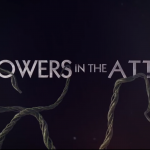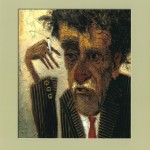Note: This is the second post in CAPC’s coverage of Stephenie Meyer’s Twilight Saga. Check out Carissa Smith’s post on Twilight for some thoughts on the series’ first novel. This post focuses on New Moon, the second volume in the series. Next up: Eclipse.
Vampires may be undead, but in Stephenie Meyer’s Twilight Saga, they can be killed. Granted, it’s very difficult to kill a vampire: it requires ripping them into pieces and then burning the pieces, thus almost guaranteeing that only another super-strong vampire can perform the deed. But what happens to the undead after they die?
It turns out that this is one of the central questions behind the dilemma of whether Bella Swan will give up her mortality to stay eternally young with her vampire love Edward Cullen. You see, Edward believes that vampires have lost the souls they once had as humans, and so he’s adamantly opposed to Bella’s risking her soul for him. At this point you may be asking (as I certainly was): what, in Meyer’s fictional world, is a soul, exactly? It’s not entirely clear. Evidently it doesn’t mean that part of a person that directs the conscience or responds to the divine, because Meyer’s vampires have a clear sense of good and evil and Edward and Carlisle (at least) believe that God and heaven and hell exist. However, Edward doubts that any sort of afterlife exists for vampires—and that, if it does, it involves eternal damnation.
Bella’s fairly eager to take that risk, since, as she points out, she’s been raised “fairly devoid of belief,” and she thinks that being with Edward is “heaven” enough. (Whatever.) I think we’re supposed to regard her recklessness with eternal matters as somewhat misguided. Time (and the rest of the series) should reveal more. However, the introduction of this aspect of the Bella-Edward dilemma raises the stakes (so to speak) significantly and makes New Moon an important building block in the series.
Meyer has said in an interview that each of the Twilight books is loosely based on or inspired by a classic work of literature: Twilight is Pride and Prejudice; New Moon is Romeo and Juliet; Eclipse is Wuthering Heights; and Breaking Dawn is A Midsummer Night’s Dream and one other book that Meyer refuses to reveal, because it would be too much of a spoiler. Back to that Romeo and Juliet and Wuthering Heights bit. Neither is what I would call an inspiring love story, unless love involves killing yourself over mistaken assumptions or trying to make your loved one miserable by tormenting her family and weaseling away her estate. Yet both are hailed as incredibly romantic, for reasons I cannot fathom. By using these works as models for her fiction, is Meyer trying to revise them, or is she merely paying tribute to them?
I’m really not sure, but I do know that, after reading New Moon, I think she may have tried to stick too closely to Romeo and Juliet, to the extent that her characters’ motivations feel wrenched to fit another plot. To discuss that in more detail, I’m going to have to get into some spoilers, so if you plan to read New Moon and haven’t yet done so, you might want to stop reading here.
There are some effective ways that Meyer uses the Romeo and Juliet story, most notably by introducing the ages-old feud between vampires and werewolves. There are also some ineffective ways (Edward the suicidal vampire, I’m looking at you). Yep, at one point Edward thinks that Bella is dead, and so he goes to Italy and tries to get a vampire clan there to kill him. You’d think that, with all Edward’s high principles and his practice of self-control, he might classify suicide as a selfish indulgence of emotion,* but I guess not. I suppose vampires do tend toward the emo side. Of course, there are two more books left in the series, so Edward obviously doesn’t succeed at his goal. However, I’m disturbed that, by the end of New Moon, he is still willing to be so careless with his (undead) life that, as he and Bella are discussing what would happen if she stayed mortal, grew old, and died, he answers, “I’ll follow after as soon as I can.” Bella calls that idea for what it is: “sick.”
But did you notice that what Edward said implies that, at some level, he thinks there might be an “after” for him after all? His attempted suicide does set up a situation that proves that he’s not entirely convinced of his own soullessness . . . but surely there could have been other ways to accomplish that in the story.
So it seems that both our protagonists have some growing to do, to learn what they should be willing to trade for life together. I have to admit, I’m hoping for a bittersweet ending that involves Bella and Edward sacrificing something other than their lives—or their souls.
*I don’t want to sound insensitive here to those who have lost loved ones to suicide—while it’s not an action I can approve of in any circumstances, I feel great sorrow for those who, due to despair or chemical imbalances, have taken their own lives.















